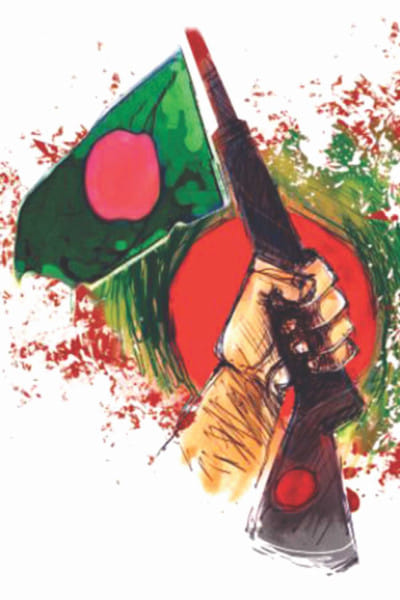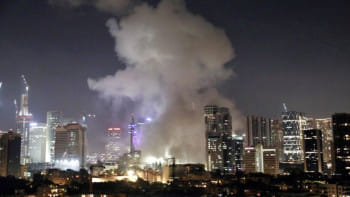The emergence of Bangladesh

From a legal point of view, the Independence Day of Bangladesh has a connection with the Proclamation of Independence of 1971 which is considered to be one of the bases of our national liberation and present legal system. Bangladesh, as a State became independent on the 26th of March as it had started to possess all the elements of Statehood from this very day.
In political science, (a) population, (b) territory, (c) government, and (d) sovereignty are widely accepted and generally known as the elements of a State. According to the Montevideo Convention of 1933, a State also needs to have capacity to enter into relations with other States.
Bangladesh, the then East Pakistan, in 1971, had her own population of 75 million having allegiance to the leader Bangabandhu Sheikh Mujibur Rahman and a land area of 147,610 km (56,993 sq mi). This area of land was vested on the eastern provisional-State for independent administration after the 1947 partition between India and Pakistan.
In exercise of its right to self-determination, the first (provisional) government of Bangladesh was formed by the elected representatives of Bangladesh on the10th April 1971, and the formal swearing was held on the17th April 1971, at Mujibnagar. Thus, a de facto government turned into a de jure one with the force of the Proclamation of Independence which served as an interim constitution for the country. Till the Constitution was formally drafted and adopted, this government administered the country having functional executive and legislative wings both during and after liberation war. The Proclamation of Independence was given retrospective effect from the 26th of March, 1971.
The Declaration of Independence was given by the father of the nation at the early hours of the 26th March, 1971 saying, "...from this day Bangladesh is independent". Even on 7th of March, he urged the Bengali population to prepare for liberation war. This however did not establish the sovereignty of Bangladesh at that moment. Bangladesh was declared sovereign by the Proclamation of Independence itself. The declaration of independence by Bangabandhu was instrumental to the resistance and in the formation of a provisional government as it served as a direction at a crucial moment for the nation. To simply understand, sovereignty (of a polity, i.e. political unit) is, among others, the state of making laws and controlling resources without the coercion of any other country. As Bangladesh had been a sovereign nation then, it exercised its legislative authority by issuing the Laws Continuance and Enforcement Order which provided that "all laws which were in force on the 25th day of March, 1971, in the territories now comprised in the People's Republic of Bangladesh shall continue to be in force in Bangladesh". Therefore, it is considered for Bangladesh to have had attained sovereignty on the 26th March.
Despite the provisional government was formed on 10th April, its effectiveness was from the 26th March in which day the four elements of State came into existence. This is how it became the Independence Day of Bangladesh and still reminds us about the emergence of a new State.
The writer is a student of law, University of Dhaka.

 For all latest news, follow The Daily Star's Google News channel.
For all latest news, follow The Daily Star's Google News channel. 



Comments